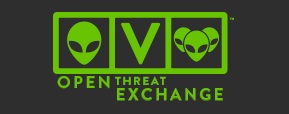AlienVault Launches Open Threat Exchange (OTX) 2.0 Beta
Unified security management and threat intelligence solutions provider AlienVault today announced a beta version of Open Threat Exchange (OTX) 2.0.
Launched in 2012, OTX was one of the first crowd-sourced threat intelligence sharing platforms. Currently, over 26,000 security professionals and threat researchers from more than 140 countries use AlienVault OTX to share information and defend their networks against online threats.
With the release of OTX 2.0, AlienVault said it has redesigned the platform and made a shift from a contribution-based model to a community engagement-based model.
Inspired by services like GitHub and Twitter, the new social threat exchange platform features a real-time “threat feed” where members of the OTX community can share, view, and discuss threat research, techniques, data and trends. Users will be able to import and export indicators of compromise (IoC) for their security tools by leveraging an open API.
AlienVault OTX 2.0 is somewhat similar to Facebook’s recently launched ThreatExchange. However, AlienVault’s platform doesn’t use an API-based approach and it will be open to the entire security community, not just a few select companies. The list of new partner members includes Bit9, Fujitsu SSL, Columbus Business Solutions, ThreatStream, NOPSEC, Ziften, T-Systems, Immediate Insight, Blueliv, Brinqa, RickSense, and Centripetal Networks.
“When we first released Open Threat Exchange, our goal was to deliver an open threat intelligence-sharing network that put effective security measures within the reach of all organizations,” commented Barmak Meftah, president and CEO of AlienVault. “As others in the industry have developed threat intelligence offerings that support that vision, our goal for OTX 2.0 is to move the needle on how threat intelligence data is shared, making it more collaborative and engaging in order to build a stronger security community working in unison to stop cyber attacks.”
OTX 2.0 users can create or subscribe to a so-called “Pulse,” which provides an analysis of a particular threat, including information on IoC, impact, and targeted software. Pulses can be exported in various formats such as STIX, JSON, OpenloC, MAEC and CSV, and they can be used to automatically update local security products to ensure that system are protected against the latest threats.
AlienVault OTX 2.0 beta will be previewed next week at the RSA Conference in San Francisco.
The security startup also announced today the launch of version 5.0 of its Unified Security Management (USM) solution.















